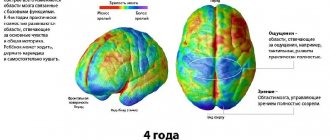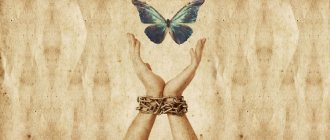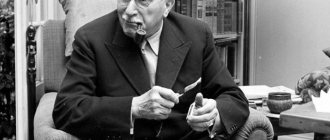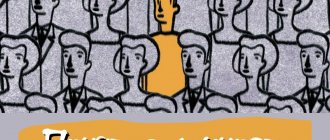Adviсe
- Freedom or responsibility
- Basic theory
- Is there such a thing as unconditional freedom?
- How to become a free person?
- How to understand your own freedom
Freedom and the concept of “freedom” is an eternal question, relevant at all times. Freedom is a very controversial aspect of life, causing a lot of judgment and controversy, because the realities of life are such that the concept of “freedom” is different for everyone.
At the same time, personal freedom is a multifaceted concept. Freedom is expressed in the economic aspect, in freedom of action. There are other types of freedoms - political, spiritual freedom and others.
Thinkers and philosophers have tried to understand freedom, giving the concept different interpretations.
T. Hobbes believed that the meaning of freedom is that a free person has no obstacles to action. I. Bentham believed that laws destroy freedom. Existentialists argued that man is free from birth. N. Berdyaev - that a person is initially in freedom and it is impossible to remove it. J.P. Satre saw the meaning of freedom in the preservation of human essence.
Freedom or responsibility
Another aspect of personal freedom is necessity and opportunity. A person is not free to choose conditions, but at the same time a person is free to choose a goal and means for its implementation.
Freedom is an attribute of personal development, but if a person does not have responsibility for freedom of choice, this is called arbitrariness.
A person lives in a society, his freedom is compared with the freedoms of other citizens, which means it characterizes a specific individual. Between the concepts of “freedom” and the concept of “responsibility” we can safely put an equal sign. The freer a person feels in society, the higher his responsibility for using it in society.
Overcoming internal barriers
According to experts, many people, to one degree or another, have various fears and complexes. The reason for their appearance is past failures. It is noteworthy that they can be both personal and failures that are passed on “inherited”. For example, if your parents did not succeed in something, most likely this insecurity will be passed on to you. Thus, you will already be programmed for failure. Of course, you can leave everything as is. However, this will only be your first barrier on the path to inner freedom and independence. Therefore, it is better to leave the negative experience behind and try to improve the situation.
Basic theory
The philological definition of freedom says that its origins go back to Sanskrit roots, which in translation sounds like “beloved”. They talk about freedom in the following way: if a person is independently able to choose, think, and act at his own discretion, he is free.
To understand freedom, one should become familiar with two types of this definition - voluntarism and fatalism.
The origins of voluntaristic freedom say that a person is free from necessity, from duty. Fatalism defines freedom as tribute. A person does not change anything, but accepts everything as a tribute.
Fatalism determines that freedom is involuntary and not allowed to everyone, because human actions are limited by boundaries - natural, cultural, socio-historical, political, the level of development of the individual or the country in which he was born. It is limited by the objective laws of the development of nature and society, laws that man cannot cancel.
Other definitions - the legal concept of freedom is that a person is at the legislative level with clear justifications for action. This includes freedom of speech, etc. The legal concept of freedom is interpreted as human actions that do not cause harm to others when a person obeys the law and established rules.
The economic aspect of freedom defines it as engaging in any type of activity, taking responsibility and risk for one’s choice, for one’s activities.
The main features of a free person
Considering the characteristics that a free person must have, first of all we can highlight the responsibility that should accompany everyone who could classify themselves as part of such a group. If responsibility sits deep inside, and literally all actions and actions are subordinate to it, then freedom characterizes such a person quite reasonably. The ability to be responsible for absolutely all the results obtained, to independently make every decision without exception, to rely only on your own sense of reality - all this is a manifestation of responsibility.
Self-sufficiency and freedom are two concepts that are closely interrelated. One simply cannot exist without the other. But who is a self-sufficient person? This is a personality formed on the basis of one’s own views. The opinion of such a person depends only on her analysis of the situation and the conclusions drawn. Time is distributed in accordance with one’s own needs, material and spiritual independence from other people is emphasized. The life of such a person is filled with meaning, optimism, and confidence in the future.
Openness refers to a person's ability to be open to change. He easily allows innovations into his life that should help him acquire what he wants. The main thing is not to give in to possible difficulties and be able to force yourself to leave your comfort zone.
Uniqueness is an integral feature of free people. It implies the ability to possess a certain set of qualities that are not inherent in everyone. What does it mean to be free in terms of uniqueness? The answer lies in the ability to make your own choices, despite existing trends. For example, fashion dictates its own rules in clothing, makeup, style, etc., but only a free person can refuse the so-called dictatorship of fashion. He is able to make a decision without looking at other people's opinions. It is quite difficult to do this, but this is where the whole solution lies, so acquiring freedom is hard work.
Read more: How to love yourself
Is there such a thing as unconditional freedom?
From birth a person is free and this right is inalienable from him. A person grows, develops, comes into contact with the environment and society. The internal feeling of freedom gradually fades away and becomes dependent on circumstances and other factors.
Unfortunately or fortunately for the person himself, there is no absolute freedom. Because, even living as a hermit, a person is forced to take care of shelter, food and clothing. Those who live in civilization all the more obey the norms adopted by the laws.
Do what you love
According to experts, free people try to make their favorite business bring them profit. To do this you just need to love your job. There can be no talk of inner freedom if you treat your work like hard labor. In addition, you are absolutely dependent on your boss or director, who determines the size of your salary.
Thus, while doing something you don’t like, you are financially and psychologically dependent on another person, who sets you the program by which you must live. Undoubtedly, money is very important in our world. However, chasing profit, the individual becomes their hostage. To improve the situation, you don’t have to become a hermit or throw your own financial well-being aside. If you don’t know how to become free and happy, find yourself an activity that would become your permanent source of income or additional income. The main thing is that you work in the area in which you are interested. As a result, you will be filled with only positive emotions.
How to become a free person?
Personal freedom begins with oneself. It is not necessary to free yourself from your loved ones, things, the course of events and other life objects; on the contrary: you need to clearly understand that freedom comes, as it were, from within a person. It is important to give internal guidance.
Internal liberation begins with the removal of restrictions, which is provided by the mind and subconscious. The most important criterion for removing restrictions is the rationality of actions. Liberation from one's own instincts and reflexes allows a person to control them and take power over them. Moreover, by controlling his own reflexes and instincts, a person receives “bonuses” - control and correctness of his own behavior in society, prevention of ambiguous actions. A free person knows no regime. She is sensitive to her body and listens to it. There is no need to adhere to a sleep and nutrition schedule, rest and other things. There is freedom of secondary reflexes, as well as their control. By occupying such a position, the individual receives more energy from food, his rest becomes better, and his productivity becomes much better. It is important for an individual to be free from complexes, especially inferiority complexes. After all, in fact, this is the main freedom, which many people spend a lot of time acquiring. An inferiority complex is energy-consuming; it “devours” an individual from the inside. An inferiority complex is born from negative experiences that a person hides within himself.
Personal freedom is defined in getting rid of the power of emotions. True freedom is when a person acts not under the influence of his own emotions. After all, falling under their influence, a person acts unconsciously, sometimes badly, often regretting what happened as a consequence. After which another complex is certainly generated. In the case of freedom from emotions, it is important not to overdo it. Feelings in themselves are beautiful; the irrational principle pushes a person to create. But if emotions take the reins over reason, then danger arises for the person himself and his environment. Controlling your own emotions is not easy, but it is necessary, systematically and slowly. To begin with, as in the case of complexes, it is important to identify the problem and accept it. To better understand the nature of your emotions, you need to step back from the problem and look at yourself from the outside, as if from the outside. Then the observer will be able to see his actions, as well as the excessive manifestation of feelings as a spectator. They can be reasoned logically, an explanation and assessment of one’s own actions can be given. At some point, your own actions will become ridiculous and funny. Another freedom is freedom from the logical paradox of being an adult without killing the child within you. After all, in essence, children are not limited, their minds are not littered, they have no prejudices.
Be honest with yourself
Undoubtedly, it will not be superfluous to sometimes listen to the opinions of other people. However, this must be done consciously. Even though you will receive good advice from your parents and friends, do not forget that you have your own life, and therefore you have the right to manage it at your own discretion. This is where your freedom as an individual will manifest itself. Before you become free and begin to defend your personal opinion, you need to first develop it. Otherwise, your rebellious spirit will look ridiculous.
How to understand your own freedom
You can determine personal freedom by honestly answering five questions to yourself:
Am I an independent person? Can an individual independently develop, learn and experience new things, does he stop at the achieved result, does he move forward. Am I doing what I love, a hobby, so that it becomes a source of permanent income? A person is successful when everything in life is filled with love, especially work. If a person does a job he doesn’t like, he is definitely not happy. But an unhappy person does not gain freedom, because he is “chained” by necessity or want. Is my thinking free from outside influence? Can an individual think independently, regardless of circumstances and other people? Do I read a lot of books? Books are an excellent source for development. You can start with books on self-development; you can comprehend the biographies of famous people who achieved success during their lifetime. This will not add freedom, but it will tell you in which direction to move. Am I in control of my emotions, thoughts and feelings? A person who feels and at the same time is his own master is free.
A free person does what she likes, what she wants. Such a person stands out from the crowd, she is not like others, because she lives according to her own specific program, which is not imposed by strangers.
Where to begin?
How to become free? What should you do first for this? Experts recommend analyzing the situation and determining why you cannot be free? There are several factors that make us addicted:
- The presence of various fears and complexes. Most often, they make an individual insecure.
- Dependence on other people's opinions. Often people live according to stereotypes that are accepted in society.
- Financial well-being also plays a big role.
- Lack of independence.
- Avoiding the fight. As a result, a person cannot act decisively.
In addition, it is very important to always be yourself. Once the reasons that make us dependent have been identified, we should begin to work to eliminate them.
Limiting factors
Often the desire to gain freedom is not enough. This requires a tremendous amount of work on yourself. Man has been given a great gift - inner freedom, the level of which is different for everyone. And this gift can be developed. But on the way, in fact, there are many obstacles and obstacles. We are being hindered by:
- Moral standards that are invented and imposed by someone.
- Features of education. Each person was given certain complexes in childhood. Some people have very little, while others get it in full. Most of the complexes were planted in us by our loved ones, our parents. And often strict parental forbidden words accompany you until the end of your days. For such people, when they become parents, it is important to “inherit” the same prohibitions to their children. At the same time, all boundaries of personal space are violated due to the fear of not being like everyone else. Yes there may be exceptions. Someone still decides to break the rules and resist the recommendations and advice of the older generation. However, this freedom is obtained in conditions of growing tension and complete misunderstanding.
- Childhood traumas of a psychological nature prevent one from enjoying complete freedom, emerging and affecting the quality of life in adulthood.
- The traditions of a family or clan are often very difficult to break. After all, this could threaten a complete break in the relationship.
- Artificially created restrictions on freedom. This has to do with ideological persons.
- Comparisons with others, often not to one's advantage, prevent one from living calmly, being happy and free.
Read our article “Who is Aleister Crowley?”
No environment can imply freedom
No environment as such can imply freedom, since its source can only be the person himself. Interaction with the environment can be divided into 2 types:
1. Organic is interaction at the animal level, when a creature is simply woven into the environment to which it is completely conditioned. Representatives of a non-human species can be cited as an example.
2. Reasonable is interaction at the level of social hierarchy, in which the fundamental difference from interaction of the first type (regardless of whether it is hierarchical or not) is the presence of an idea as a way to realize one’s personal interests. That is, the mind allows you to be above the level of complete conditioning, due to the possibility of perceiving yourself as a separate being, whose behavior does not depend entirely on the natural environment, but a being that can create its own environment. This is what I call "individual freedom"
From this we can conclude that freedom, by its nature, is an individual phenomenon.











